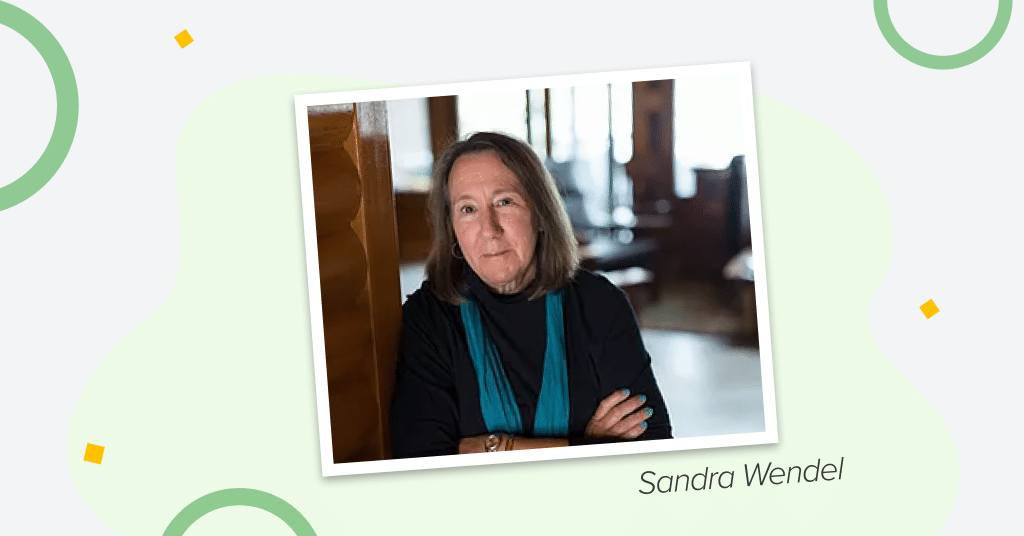Sandra Wendel, Write On, Inc.
And there you are with a 70,000-word manuscript. You wrote the book you always wanted to write—a fantasy world with characters that wouldn’t leave your head, a business book on leadership with the wisdom you felt compelled to share with the world, a memoir to rival The Glass Castle.
Now what?
Many first-time authors think they should jump right into production. Find a cover designer and get into print.
Hold on! Don’t forget the most important next step between writing and publishing and that’s finding an editor to help you polish your prose for publication. The most effective and striking book cover design won’t help you become a best-seller if you don’t have the words right (including an optimized title).
Yes, but where can you find an editor? And not just any editor. The right editor for your book.
Who Is an Editor (and Who Is Not)?
Chances are you’ve never known an editor. Can your next-door neighbor, a retired English teacher, be your editor? No. That’s the short answer.
And that literature major who is a friend of your daughter’s? Not an editor. Or the novelist in your writing critique group? Probably not.
Can you be your own editor? Yes, along the way, but not for a final draft. Editing is not you as the author simply revising.
How about software that claims to find and fix your mistakes? Not a chance.
Anybody can say they are an editor. Some universities offer coursework and certification programs in editing. Ultimately, editing is a skill that sharpens over time, with experience.
I always ask my authors how they found me. And I asked myself how I would find me. Here are my best tips to finding the right editor:
- Membership organizations for editors have profiles. You can comb through the profiles at the Editorial Freelancers Association (www.the-efa.org) and look for a suitable editor who has experience in the type of book you are writing. Or you can post a job. Other membership organizations with editor profiles include ACES: The Society for Editing, NAIWE (National Association of Independent Writers and Editors), and Editcetera.
- Look in books you think are well written (and presumably well edited). See if the authors thank their editors in the Acknowledgments section. If the book was independently published, you might identify the name of an editor and then find that person online.
- I have an online profile listed with several collectives of publishing services freelancers. You look through profiles of editors, cover designers, and other publishing industry providers and invite a handful to quote your editing project. Try performing a Google search on the term freelance book editors to find these collectives. My bias is showing, but I would want a native American English speaker, not someone in the UK, Australia, or Canada, if my book is going to be released on Amazon in the US. There are too many nuances in English (although I am often hired to convert British English or Australian English to American English).
- Ask your writers’ critique group, whether you meet online or in person, if fellow authors know suitable editors for you.
- Your independent bookstore owners and librarians may know local editors.
- Many publishing services companies (and I’m not talking about companies that bill themselves as publishers, per se) offer editing services. Beware of so-called publishers because many of them are in business to sell you services, up-sell you even more services, and sell you your own book. They offer publishing packages that include editing. Beware. Always Google the word fraud or scam with the name of the prospective publishing company to find out their reputation. Preditors and Editors tracks low-life publishing scammers as does the Writer Beware® blog and website.
- LinkedIn offers a ProFinder service.
By now you are wondering how to judge an editor’s work, credentials, and pricing.
Questions to Ask an Editor You Are Interviewing
Pick up the phone and talk or Zoom with someone you are going to entrust your precious manuscript to. Editing is an intimate process. You want to feel comfortable with the editor.
Ask these questions and expect the types of answers I suggest.
- What is your experience? Look for someone who has edited books like yours. If you’re writing a true crime story, you may not want someone who specializes in romance, but it’s possible an editor who edits mystery thrillers might be helpful. Ask about credentials, certifications from familiar membership or educational organizations, coursework, length of time editing. At least a few years of experience would be optimal.
- Can you give me three references of authors who have written books similar to mine that you edited? Call or email the authors a potential editor recommends as references and ask how the process was for them regarding the editor’s thoroughness, responsiveness, and ability to meet deadlines.
- Are you willing to do a sample edit? Ask the prospective editor if they would edit a sample of your manuscript. Let them choose the five-page sample. If you get back a Word document with Track Changes and thoughtful marginal Comments, and if you think the editor found issues you had not considered but agree with, you may have found your match. Be careful of the editor who does unwarranted major rewriting.
- What style do you use or recommend for my book? The right answer is, “I use Chicago Manual of Style, but if we deviate from that, in spellings or other conventions, I will keep you consistent.”
- What is the sequence of your editorial process? First-time authors don’t know how the editing process unfolds. I explain that I like to do a two-pass edit. In other words, (1) I do a major first pass for everything the manuscript needs: content, sentence-level, mechanical such as punctuation. I know I will miss items as the pages start to fill with tracking and comments. But the first pass is intended to pick up most of the editing. Then (2) the manuscript goes to the author for review, acceptance of the edits, and attention to the comments. At that point, the author may revise areas, add or delete sections in response to the comments, and respond to questions from the editor. The manuscript then (3) comes back to me for cleaning up, removing comments the author responded to, and another full editing pass. Find out the process your prospective editor uses.
- How long will it take for you to start my edit, and when will the edit be completed? Confirm a reasonable timetable with your editor: a date when you can deliver your final manuscript, the date the editor will return it to you for your review (a few weeks is reasonable to me; two months is not).
- Do you read my entire manuscript before you price your editing? How much does an edit cost? What level of edit do I need? Do we need a contract? I address these questions in a separate blog.
Questions Your Prospective Editor May Ask You (and Should)
Be prepared to answer these questions because a thorough editor will want to know:
- What is your goal in writing this book?
- What is your book about?
- What is your area of expertise?
- How do you plan to publish your book?
- Do you have a deadline?
- What type of editing do you think your manuscript needs, and what are you expecting from an edit?
- Who is your target reader?
Even with diligence in finding an editor, interviewing, and checking the work sample and references, an edit can go horribly off track, and that is the subject of another blog post.
But most of the time, an author and editor collaborate well together, a final pristine manuscript emerges and moves into production with cover and interior design, and everybody lives happily ever after.
Sandra Wendel is a highly experienced book editor who specializes in helping authors write, polish, and publish their nonfiction manuscripts. Thus the impetus for writing her new book, Cover to Cover: What First-Time Authors Need to Know about Editing. Visit her website at www.SandraWendel.com. Email her at [email protected]. Join the Facebook group she hosts at FirstTimeAuthorsClub.



